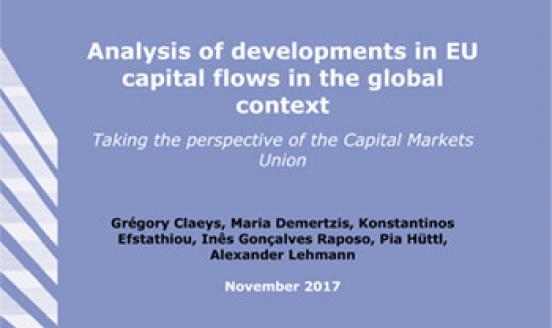Macroeconomics in the crossfire (again)
What’s at stake: After a first go at macroeconomics and its flaws a year ago, Paul Romer kicked off the debate again with a recent essay on how macroe
The macro debate between past beliefs and the lack of data
Romer kicked off the debate in an essay, stating that for more than three decades, macroeconomics has gone backwards. He finds that the treatment of identification now is no more credible than in the early 1970s, but escapes challenge because it is so much more opaque. Macroeconomic theorists dismiss mere facts by feigning an obtuse ignorance about such simple assertions as "tight monetary policy can cause a recession." For Romer, the Nobel Prize-winning crop of macroeconomic theorists who transformed the field in the late 1970s and 1980s -- Robert Lucas, Edward Prescott and Thomas Sargent - are the main people to be held responsible for this this development. Their models attribute fluctuations in aggregate variables to imaginary causal forces that are not influenced by actions that any person takes. Especially when it comes to monetary policy, the belief that it has no or little effect on the economy is disturbing, or as Romer puts it:
“The trouble is not so much that macroeconomists say things that are inconsistent with the facts. The real trouble is that other economists do not care that the macroeconomists do not care about the facts. An indifferent tolerance of obvious error is even more corrosive to science than committed advocacy of error.”
While Noah Smith agrees with Romer’s general message, he points to the fact that most of the profession does believe in the power of monetary policy by now. The dominant form of macroeconomic models for at least a decade has been the so-called New Keynesian models, which say that interest rates play a very large role in stabilizing the economy. These are also the dominant form of the modern macro model in use in central banks. New Keynesian theorists such as Greg Mankiw, Michael Woodford and Olivier Blanchard have not yet received Nobel prizes, but their views and ideas are thriving in the marketplace of ideas. Noah Smith identifies the lack of good evidence as the real fundamental problem with macroeconomics. Because data is sparser and weaker in macro, theorists have a natural incentive to rely on their own pre-existing beliefs, on generally accepted practice and on the wisdom of authorities.
Nick Bunker points out that in a recent speech, the Federal Reserve Chair Janet Yellen raised important questions about macroeconomic research in the wake of the Great Recession. The first area of interest is the influence of aggregate demand on aggregate supply. Yellen points to research that increasingly finds so-called hysteresis effects in the macroeconomy. Hysteresis, a term borrowed from physics, is the idea that short-run shocks to the economy can alter its long-term trend. One example of hysteresis is workers who lose jobs in recessions and then are not drawn back into the labour market but rather permanently locked out, therefore increasing the long-term unemployment rate. Another open research question that Yellen raises is the influence of “heterogeneity” on aggregate demand. Ignoring this heterogeneity in the housing market and its effects on economic inequality seems like something modern macroeconomics needs to resolve. Yellen raises other areas of inquiry in her speech, including better understanding how the financial system is linked to the real economy and how the dynamics of inflation are determined. Nick Bunker concludes by stating that perhaps it is time for each of these questions to rise on the collective research list so that policymakers have better vantage points as they assess the effect of inequality on economic growth and stability.
Simon Wren-Lewis identifies yet another factor which lies at the heart of macroeconomic criticism: ideology. As an example he quotes Real Business Cycle (RBC) research from a few decades ago. That was only made possible because economists chose to ignore evidence about the nature of unemployment in recessions. There is overwhelming evidence that employment declines in a recession because workers are fired rather than choosing not to work, and that the resulting increase in unemployment is involuntary (those fired would have rather retained their job at their previous wage). Both facts are incompatible with the RBC model. Why would researchers try to build models of business cycles where these cycles require no policy intervention, and ignore key evidence in doing so? The obvious explanation is ideological. While Simon Wren Lewis cannot prove it was ideological, it is difficult to understand why one would choose to develop theories that ignore some of the existing evidence, in an area that lacks data. There is reluctance among the majority of economists to admit that some among them may not be following the scientific method but may instead be making choices on ideological grounds. This is the essence of Romer’s critique.
The ideology in economics and today's woes
Over at critical macro finance, Jo Michell disagrees with Wren-Lewis when he chooses to draw a dividing line between those who use a sticky-price New Keynesian DSGE model and those who use a flexible-price New Classical version. Simon Wren-Lewis suggests that the beliefs of the latter group are ideological, while those of the former group are based on ideology-free science. This strikes Jo Michell as arbitrary. Simon’s justification is that, despite the evidence, the RBC model denies the possibility of involuntary unemployment. But the sticky-price version – which denies any role for inequality, finance, money, banking, liquidity, default, long-run unemployment, the use of fiscal policy away from the ZLB, supply-side hysteresis effects and plenty else besides – is acceptable. Instead, both have an ideological bias – the reason being that the standard New Keynesian model is not a Keynesian model at all – it is a monetarist model. Aside from the mathematical sophistication, it is all but indistinguishable from Milton Friedman’s ideologically-driven description of the macroeconomy. In particular, Milton Friedman’s prohibition of fiscal policy is retained with a caveat about the zero-lower bound in recent years. To argue otherwise is to deny Keynes’ dictum that ‘the ideas of economists and political philosophers, both when they are right and when they are wrong are more powerful than is commonly understood.’
Ann Pettifor reflects more generally on the fact that the Brexit vote is but the latest manifestation of popular dissatisfaction with the utopian ideal of autonomous markets beyond the reach of regulatory democracy. Brexit represented the collective, if (to her mind) often misguided efforts of those ‘left behind’ in Britain to protect themselves from the predatory nature of market fundamentalism. In a Polanyian sense, it is a form of social self-protection from self-regulating markets in money, trade and labour. In her opinion, with the historic Brexit vote, the British people rejected this flawed brand of economics — and in particular the dominant liberal finance narrative. And they did so because the hardship they are experiencing — repressed wages, diminished public services, rising housing costs and shortages, and insecure employment — is indirectly a consequence of the theories and policies of the mainstream economics profession.
This gets backing from other economists, among them Kevin O'Rourke, who argues that after the Brexit vote, it is obvious to many that globalisation in general, and European integration in particular, can leave people behind – and that ignoring this for long enough can have severe political consequences. He argues in a recent piece that this fact has long been obvious. As the historical record demonstrates plainly and repeatedly, too much market and too little state invites a backlash. Markets and states are political complements, not substitutes.



